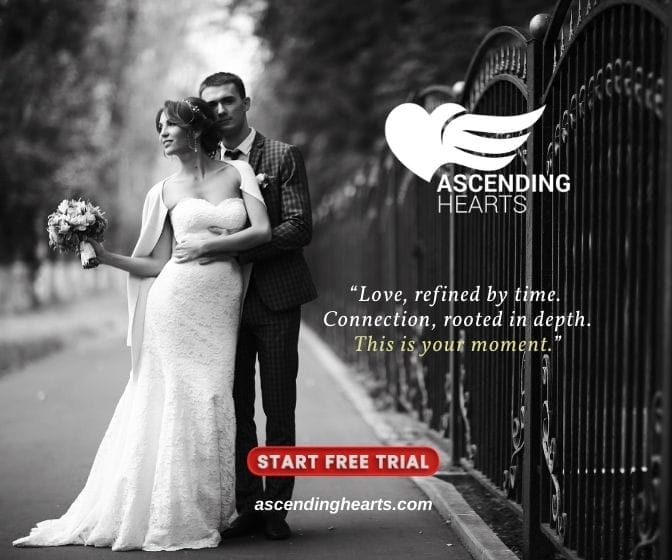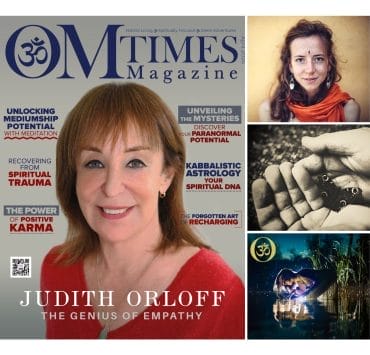And it’s the power of love. It’s the power of the heart. And you can feel it’s energetically uplifting and healing in the body to witness such things. Therefore, it’s important that we create acts like that in the world so others can witness it so we can experience the healing of it. And the recipient, by all means, will feel the healing of it. So, the neuroscience of Empathy and being an empath involves the Mino Nervous System in the brain, the compassion neurons. And it’s not that with an empath, the compassion neurons are on overdrive where they’re going much faster than with ordinary Empathy, which is ordinary, exceptionally ordinary, wonderful, and amazing. But it’s having the compassion neurons on overdrive so you feel more compassion for everybody, which can sometimes deplete you.
So, the trick of Empathy and being an empath is learning how to find balance in your life. It’s learning how to give and appreciate the Empathy shown to you and others in the world. Instead of just going on to the next thing, let yourself feel it as if healing energy comes from it. And I know I’ve experienced it so many times with you. You’re so empathic. Just being around you and the love in your heart can make my energy rise and be more heart-centered. And we can do this for each other. We can do this for our friends, family, and strangers, even by emanating Empathy in a line, let’s say, in a market.
Victor Fuhrman: Obviously, for those who haven’t learned to train this gift, there are both blessings and curses, aren’t there?
Judith Orloff: Well, the biggest curse, or so-called curse, is that you just get so exhausted all the time from being empathic. And it’s very painful to go on empathy overload. It’s extremely painful. And so, you want to avoid it at all costs. When people are developing their Empathy, they need to learn how to set limits with it and how to regroup, come back and have some alone time and meditation time, and really come back to themselves rather than interacting with people because otherwise, you’ll get burned out. And that could be a long process of illness and depression or anxiety, panic, or fibromyalgia. The body can turn against you if you’re overloaded all the time. You don’t want to do that to the body. And so that’s the challenge. I think it is a better word than cursed.
Victor Fuhrman: Now, some people are labeled as highly sensitive people. Is there a difference between being an empath and being a highly sensitive person?
Judith Orloff: A highly sensitive person is a little bit down lower on the spectrum in the sense that they don’t usually have the issue of being an emotional sponge and absorbing other people’s energy, but they are very sensitive to sensory inputs such as light smells, sounds, crowds, , any kind of sensory input that’s intense, they could get over overloaded from. So that’s just one step down on the spectrum of Empathy. And then below that are people with everyday Empathy, which is gorgeous. In the book, I talk about the various types of everyday Empathy. You could have cognitive Empathy, for instance. Some people have Empathy with their minds, and that’s all they want to go where they want to go. They don’t want anything else. They’re comfortable with that. And that’s fine if they don’t want to go further than that. Any kind of Empathy I honor. And then there’s emotional Empathy, where you can actually feel somebody else’s emotions. I also teach you how to avoid taking those on in the book. There’s intuitive Empathy, or you might relate to people intuitively and get flashes about them. Images, impressions, sight, smells, sounds, knowing. You might relate to people that way, but just as a warning, it’s important to avoid intuition, which is overwhelming when you’re getting too much information too fast.
Then there’s spiritual Empathy, where some people’s default form of Empathy relates to people spiritually and sees the goodness in others. They see what people can do to help themselves and the world, and they can see the white light above their heads. And so, no matter what your default is for your empathy type, you can learn to develop it, or you can learn to test the other empathy types.
Victor Fuhrman: Dr. Orloff, many people have been told you are too emotional or too sensitive, and they grow up feeling like there’s something wrong with them. Is it your experience that many of these people are actually empaths?
Judith Orloff: Oh, yes. That’s typical of being an empath, where people are told that they’re just too emotional and something is wrong with them. That there’s something that needs to toughen up or change. And it can be a very shaming message. That was the message I got as a child. I want to tell everyone who’s ever been told you’re overly sensitive. It’s not true. You are not overly sensitive; you’re beautifully sensitive, exquisitely sensitive, but you may need to learn how to set boundaries and limits, and you may need to have a better radar for positive people rather than getting involved with narcissists, sociopaths, or psychopaths. But your sensitivity is a gift.
Victor Fuhrman: There’s an old cliche that women are more sensitive than men. Does gender play a role when it comes to being an empath?
Judith Orloff: I think gender does play a role in that. Both men and women are `5t6rrrr+-empathic and intuitive, I just want to say that. But culturally, particularly in the West, men are given a really hard time about being sensitive and being a crybaby and being a whiner, and being a mama’s boy, and not wanting to go to football games, but rather wanting to go for a walk in the woods to write poetry. So, men have had a horrible time with it growing up in Western culture, and not that women have had it perfectly, but women, women are emotional, they’re considered emotional, and emotional men are not really considered strong. Hopefully, all that will change. I’m doing my best to help untrue stereotypes change, but they’re still in existence. And I have a Facebook group with about 22,000 empaths, and most of the sharing happens with women. And occasionally, a woman would say, where are all the men? Then suddenly, a bunch of them would appear and say, “We’re here, we’re listening. I just have never felt comfortable sharing about my sensitivities because I’ve been made fun of or called a crybaby, and they stick around for a while, and then they kind of recede again. And it’s mainly the women sharing.
Victor Fuhrman: What are some of the challenges that empaths may face in their personal relationships?
Judith Orloff: Ah, personal relationships. Well, there’s a chapter on relationships in the genius of Empathy. Men can face challenges such as not listening in a particular way to a woman when she shares her emotions. Sometimes, men can be considered overly rational or wanting to come in and solve the situation too quickly, you know, rather than being empathic with what the partner is going through, saying; I see you’re going through a lot, just something minimal even. However, a mistake many men make is coming into, or linear, people make. They come in and want to solve the problem too quickly. And that doesn’t feel good coming from, let’s say, I’m the person sharing something. I need to be listened to. I don’t need to be told what to do in the first five seconds of my sharing.
It feels very abrupt to do that. And, um, and so it’s important when you’re in an empathic relationship that you want to listen to each other. You want to listen to what each other says. You don’t want to talk to each other. You want to leave each other with a manageable number of questions or more subjects brought up at a time. That’s a mistake that many people make; they begin by expressing one thing.
Victor Fuhrman: Dr. Orloff, what is emotional contagion, and how does it impact the empathic person?
Judith Orloff: Emotional contagion is when emotions get spread from one person to another, usually in a workplace or a gathering of people. For instance, if somebody comes into work and says, “Oh my God, I’m going to lose my job, ” that panic will spread over the whole workplace. Everyone will think, oh, am I going to lose my job? It is just like a panic energy that’s spread, as opposed to, I’m so happy to see everyone today. Then you have positive emotional contagion where you go, that’s nice. And everybody feels a little bit more uplifted. And so, emotions have energy. Empaths feel the emotional implications the most. Somebody who has emotional Empathy as their primary style might feel it very strongly. You want the communication to be calm, as calm as possible, and loving as opposed to panic, mean, or abrupt. You can spread gratitude, you can spread Empathy, you can spread understanding, or you can spread panic, fear, and doubt.
Victor Fuhrman: In the genius of Empathy, you refer to it as a superpower. How so?
Judith Orloff: Empathy is a superpower because it can heal you, transform relationships that weren’t working at all before, and make them at least compatible, let alone loving. Empathy can help heal you physically and emotionally in terms of your relationships, and it can help heal the world as well. For instance, if many of my patients feel powerless listening to the news, they get so drained from it and want to help the world, but they don’t know how. And I’m telling you, if you sit by your sacred space, or if you don’t have one, just, you know, a place to just have a candle and some incense where you can sit quietly and do a meditation and focus on your heart energy and put your hand on your heart and feel that warmth generated there, and send your prayers of Empathy and love to those who need it in the world, that energy will go -exactly where it’s needed, and it will find that person who’s lost, or that person who is just about to give up, and it will suddenly bring a bright light to them and lift them up.
Victor Fuhrman: What would you like your readers to take away from the genius of Empathy?
Judith Orloff: I would like the readers to take away hope, that hope for a better self, better health, better emotions, a better future, better relationships, uh, time out and also connection, a deeper connection to quell the loneliness that may happen in, in our society and around the world. To feel a connection to yourself, to spirit, to others, and feel the unity of those who value Empathy and love. I know these values, I believe in them, I know they work, and I know they can uplift you no matter what’s happening. So, I hope you get away with that knowing as well.
Connect with Dr. Judith Orloff at https://drjudithorloff.com/
You will also enjoy Judith Orloff: The Empath’s Survival Guide and Dr. Judith Orloff – Achieving Emotional Freedom
Click HERE to Connect with your Daily Horoscope on OMTimes!
Visit Our Astrology Store for Personalized Reports
OMTimes is the premier Spiritually Conscious Magazine. Follow Us On Facebook, Twitter, Instagram, Linkedin, Pinterest, and Youtube
OMTimes Magazine is one of the leading on-line content providers of positivity, wellness and personal empowerment. OMTimes Magazine - Co-Creating a More Conscious Reality










